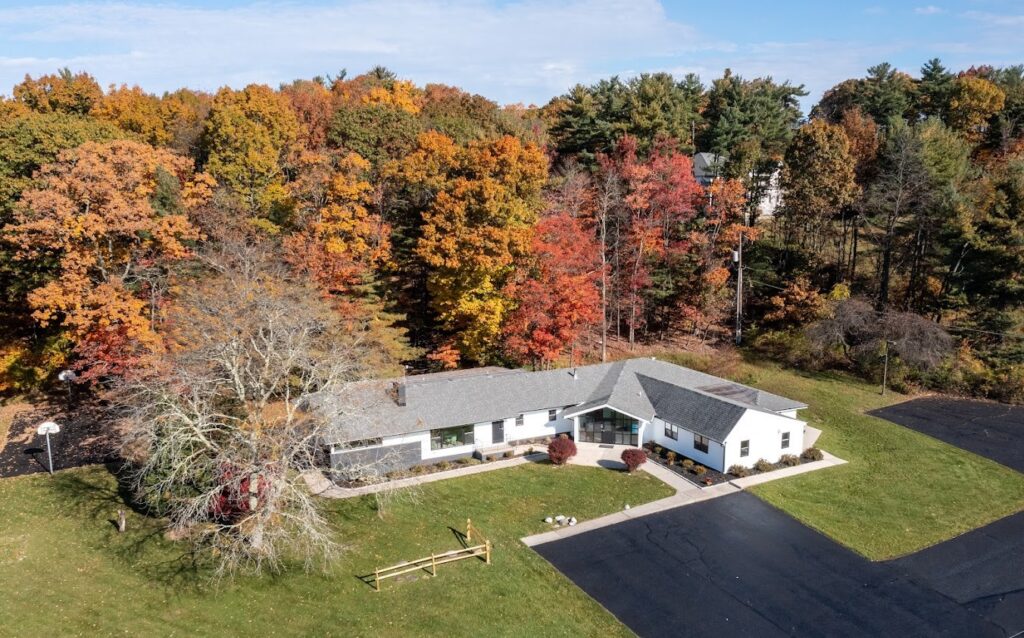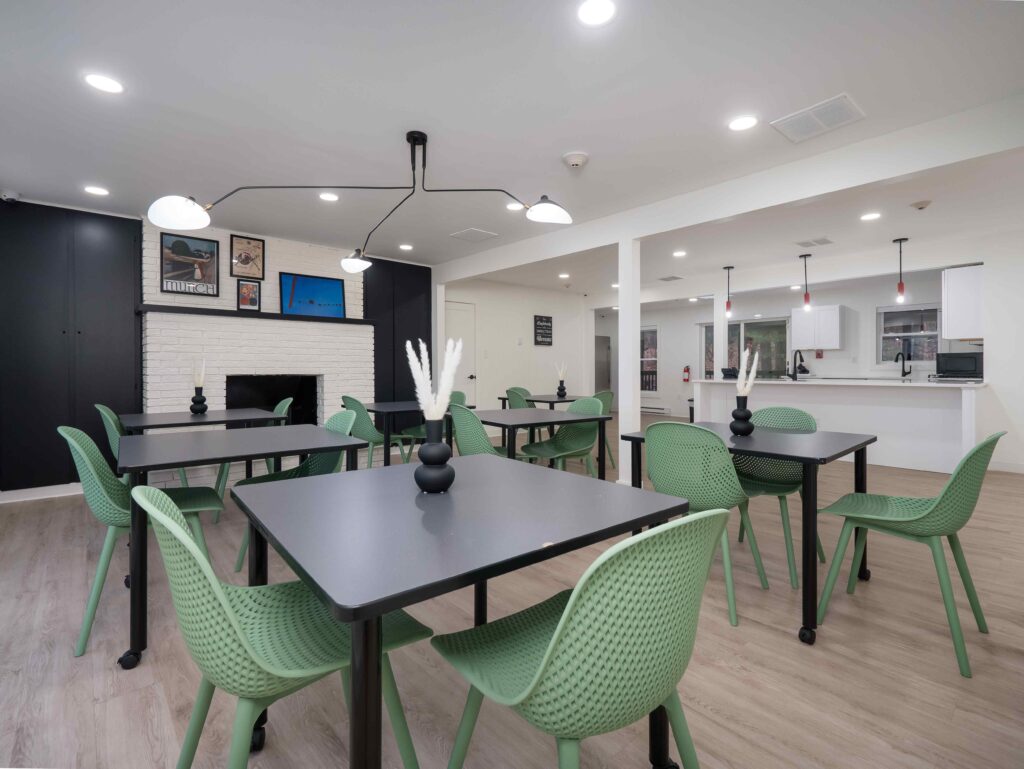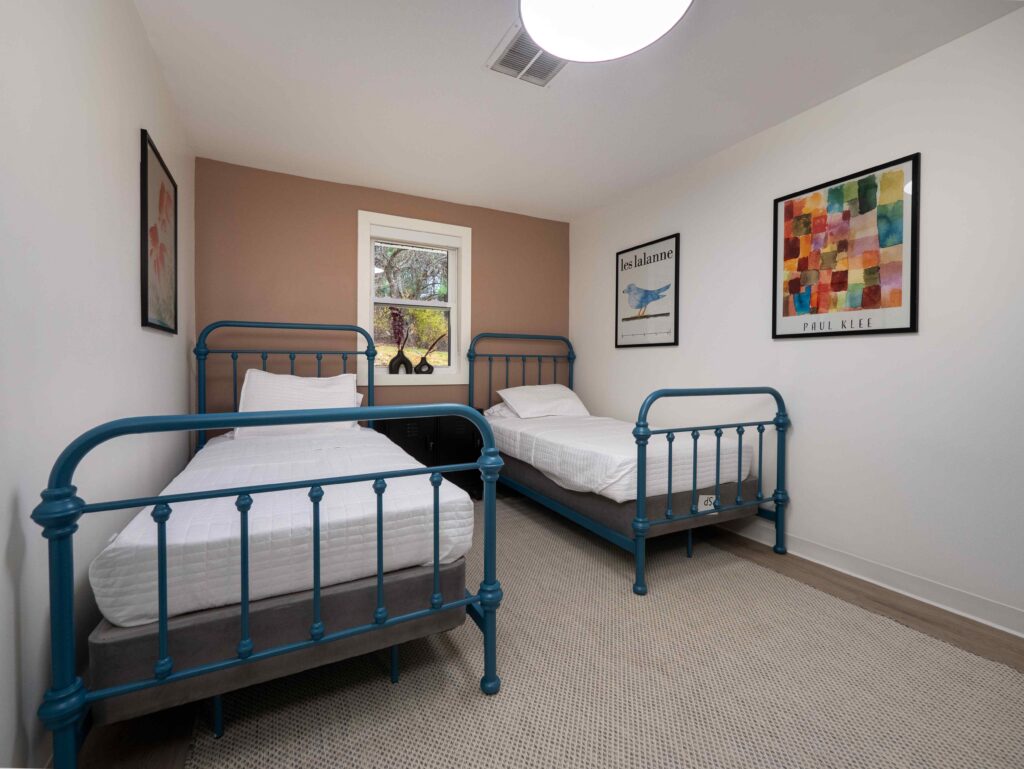menu

An In-Depth Look at Blue Ridge Eating Disorder Care Center
category 4
category 3
category 2
category 1
blog
categories
book your 1:1 call
connect with me
I utilize my own shared recovery experience to provide compassionate recovery care and empower clients to a life of health and wellness.
a Certified Eating Disorder Recovery Coach based in Dallas, Texas.
i'm merrit elizabeth
Looking for information on bulimia specifically?
visit the conquering bulimia blog
Today I am joined by Erica Butler, LMFT, Founder and Clinical Director of Blue Ridge Eating Disorder Care Center in Saylorsburg, Pennsylvania. She is a PhD candidate and her dissertation addresses weight bias in Atypical Anorexia Nervosa. She is also a PProject Heal ambassador.
Before opening Blue Ridge, Erica served as the Site Director at The Renfrew Center for Eating Disorders in Charlotte, North Carolina. She also served as the Director for Children’s Services and Assistant Clinical Director at a residential treatment facility for children.
Erica is incredibly passionate about helping families find the best treatment for their loved ones. I had the pleasure of interviewing Erica to learn more about Blue Ridge & what it has to offer adolescents with eating disorders.

Tell me a bit about your inspiration for opening Blue Ridge Eating Disorder Care Center.
It has been a labor of absolute love. I grew up in Pennsylvania, and I am passionate about eating disorders, and the bulk of my experience has been with adolescents.
When I really started getting into eating disorder work, I sort of felt like there was a gap in care in rural communities. I wanted to open a small independent facility specifically catered to adolescents, and I wanted it to be in a small community. A lot of facilities are in big cities, and I wanted this to be somewhere rural as folks that live in small communities also deserve access to really quality care.
I wanted to do what I feel I am clinically strong with–my demographic–which is teens. And, I wanted to make it accessible for folks who may not have access to drive into a big city or who may not even be close to one. Pennsylvania is a huge state with minimal access to eating disorder care.
How has your experience at other eating disorder treatment centers informed your approach to caring for teens at Blue Ridge?
I had the real privilege of working at some of the best and finest eating disorder places in the country. So that has been a true joy, and I think I have learned so much about the treatment of eating disorders, and it’s also influenced my decision of some things that we wanted to do differently. I think it’s twofold, sort of like how growing up as a child impacts how you approach parenting.
You take the good and you take some things that you want to focus on and do differently. I think for one, it has really helped me understand the comorbidity of eating disorders, as when you work in a very large treatment facility, you see a lot of different presentations.
So, I’m really thankful for that hands-on training to see suicidality in eating disorders, self-harm in eating disorders, anxiety, OCD, mood disorders, and eating disorders coexistent as one and the best way to treat those presentations. I think one thing that I’ve taken away and I’ve really wanted to do differently is being adolescent specific. I think that allows us to tailor all of our groups and our programming specifically to things that would be adolescent-relevant, like we just had prom season and how that impacts our clients.
So navigating prom and all of those things are huge for teenagers and may not be relevant to other age groups. Things like school, it gives us a great honing in on the education piece because everybody that we treat is in school. So how do we navigate the education piece, but also thinking bigger than that, eating school lunches?
How does how does that work with an eating disorder? How can we make you successful when you transition back? Family therapy is also a big part of what we do because most of the young women that we treat are still living at home. So, it’s not like they’re living on their own, they’re going back home.
They often have siblings. It really allows us to prioritize adolescents in everything that we do and make it individualized. Another thing that we wanted to do different is not have a level system.
Everybody is on their own unique recovery journey, so there are no levels for different privileges. You get privileges inherently because you’re a human being! We do have some safeguards put in place for everybody, but all our clients get the same privileges and the same activities available to them.
They can still go out; their families can take them off the grounds. You don’t have to meet any sort of goals to do the basic good parts of life. So, I think those are a couple of things that we’ve really wanted to do differently.
We have phone time every evening. And I think that’s also important to note because some facilities don’t allow cell phones, and I think that the reason that we chose to allow our folks to have supervised phone time is so that you can navigate the Internet with support. We know that that’s something you’re not avoiding.
And knowing how important phones are, we allow young women to connect with their friends, connect with those natural supports, connect with Instagram, connect with TikTok. I mean, there’s a lot of great information—there is just simply a need to engage in an appropriate way. So, we want you to be able to still use your phone and practice while you’re here and you have our guidance to use your phone in a pro-recovery way.
But we do offer fifteen minutes of extra phone time for certain situations. We have some folks who aren’t necessarily too keen on water and liquids right now. So, if you do complete your water, we’ll give you an extra fifteen minutes of phone time.
Again, because they’re adolescents and until you build that internal motivation, we must use what you’ve got, which is the motivation for the cell phone. Until we can get that internal motivation rocking, the cell phone is really what we use for a lot of those incentives.
But whether you ate zero percent of your meal plan or a hundred percent of your meal plan today, you still get the hour of phone time as well as all the other activities, gardening groups, yoga, all of those pieces you still get to do. I just don’t feel like we should be the ones deciding what your recovery looks like and what your goal should be. There’s also no way for me morally to standardize those goals across eleven different young ladies because everybody’s goals look so different.



What is an average day at Blue Ridge like for patients and how does your team keep them motivated?
We work really hard to keep our girls motivated. One of the main things that we do for motivation is work on building those relationships with our entire team. Our entire team has worked hard to build relationships with the girls that we work with. And a lot of it’s taking their feedback too.
“Hey. I didn’t like that group. It wasn’t relevant to me.” And being okay with taking that feedback from the young ladies that are receiving the information, I think that builds a lot of trust.
But our days are structured, and we do that on purpose. We never wanted to be a facility that is just hang all day and eat some meals and go to sleep. We maintain and take pride in a full day that is clinically relevant to recovery.
Of course, we have our three meals a day, breakfast, lunch, and dinner, and some snacks–based on everybody’s meal plan that’ll look different. But we have a topic group every single morning, and the topic groups are really different. They give our clinicians a chance to meet the needs of whatever the girls are going through.
And then we also have our IMT-specific groups, which are our core groups that we do before lunch. We do follow integrative modalities therapy, and that was created by Dr. Tara Dilberto, I’m a big fan and I watch all of her stuff!
It was created specifically for the treatment of eating disorders in adolescents. I appreciate IMT because, again, it allows our therapists to pivot, and it’s not a super rigid structure of a group.
IMT gives you some ideas, that are things that could be helpful and pertinent as well as some awesome handouts. But it’s not rigid. You don’t have to follow it to a T for it to still make a difference.
We also have a nutrition group that runs a couple of times a week. We do some exposures during the nutrition group, which can be really fun to see. I actually just did one with the girls and our dietitian.
A few weeks ago, she brought in a lot of different spices and vessels for the spices to try. She went to Trader Joe’s, and we had things like dill pickle seasoning, (the only reason I remember that is because it was clearly my number one).
Just getting the girls to try different ways to season their food and find joy in cooking and eating was a joy to be a part of. Of course, we have individual therapy a couple of times a week, family therapy, individual nutrition therapy, and family nutrition therapy. We offer family meals, so the families can come in and learn a little bit from our dietitian and our chef about some meals that would meet all of the components of a meal plan, but also don’t take three hours to make because that’s just not real life, especially if you’ve got other kids, you’ve got a job, or even if you don’t, three-hour meals are still a large undertaking.
So how can we do this quickly? Is that a crock pot? And then we eat them together. We sit down and show the families how we can coach their child through the meal, so they get that hands-on experience. Because we’re short-term, the child is going to come home. You are going to have to eat dinner. Parents are going to need the support to understand how to coach their kiddos through that.
And then, of course, we have education Monday through Friday, every afternoon. Our teacher comes in, and she is lovely. She works with the girls to make sure they’re all caught up academically. If they do need an IEP or they have school meetings or they’re transitioning back into the school setting, she does a great job of advocating what that can look like and what support the child may need. She also answers general questions from parents like, “Did Jenny complete your book report?” Things like that always come up and are important as well.
And then in the evening, of course, we have dinner. We have that virtual visitation at phone time where you can FaceTime Mom, Dad, Uncle, or whoever, if they’re not able to come in person. But we do have visitation in person blocked out every day of the week. So your parents, if they would like to see you every day, please, by all means, we’ll be here. And then our weekends follow a similar structure, so the groups and the meals.
But then it’s more downtime to follow the regular school week schedule, so you’re used to taking care of yourself. You can do some recovery homework. You can journal. We also have art therapy and trauma-informed yoga throughout the week, and a gardening group that we do. We now have a Blue Ridge Garden, which is like a new development, but it’s been very exciting. But that’s us, we keep busy.
How do you empower an adolescent who needs a higher level of care but feels paralyzed by fear and doubt?
I totally get that. It would be incredibly scary at sixteen, seventeen, or even younger than that to leave your family, leave your friends, leave your school, and come into this place where you know no one and you’re also prompted for change. Recovery can be really scary.
And I think having that knowledge that it would be scary makes it a lot easier because I’m not pretending it’s not. If someone calls Blue Ridge and they want to talk about our services, they’re going to talk to me. They’re not going to talk to an automated voicemail system and they’re not going to talk to five different folks.
They’re talking to the person who opened the facility. So, I think that makes a big difference. There have been a few families that I probably spoke to for two or three months weekly, giving them tips on how to talk to their child and motivate their child prior to the child even being willing to admit.
So sometimes you play the long game. I’m here for the long game. I get the long game. And those children made a beautiful recovery, so it was awesome to see. But I’m open to talking to families and hearing their fears.
I’m big on tours. I think it dispels a lot of myths and fears when you come in and see this isn’t a hospital. We’ve got windows and natural light, and the girls that are here aren’t miserable and hate it here.
And you can meet the team and see that our team is really kind. Everyone’s always a little scared to meet the dietitian, eating disorders and food have some battles back and forth. So they get to meet our dietitian Shanon, and they get to meet our chef. And I think the tours make all of the difference to see what it is really like and meeting everybody to see that maybe it’s not so bad and not so scary.
And then I think another thing that we do to build comfort is that feedback piece. There’s been a lot of times that our girls are like, “hey, what we’ve been trying to do just isn’t working for me.” And I think being really small like we are and having no huge corporate overhead that has to approve decisions, it’s just me, allows us to pivot quickly so we can meet everybody’s individual needs. For example, we had a child who was very big on music and music was a huge coping skill.
Something that quick– a five-minute ride to Walmart down the street for a room radio made all the difference for that child. And I think it’s the little things, showing folks that we hear them, and we can pivot and adjust to make this a more comfortable experience helps us with buy-in from our clients. We hear you; now will you hear us? It’s that type of give and take.
Kids are people too. They’re just younger people. But I think there’s something very powerful too, especially for me as an adult in a position of power here at Blue Ridge, to truly hear and make change at the request of an adolescent. Because if you think about it, sometimes they ask for things that don’t always work in their home lives.
For whatever reason, their needs aren’t met. They’re not feeling heard. So, I think coming at it from an approach of, “yes. I will make those changes for you. Maybe not today because I’m going to think about how I’m going to do it, but I am hearing you, and I am going to implement real change to meet your needs” can be really a different experience.
In a world where eating disorders and co-occurring mood disorders are increasing in teens what words of inspiration and hope do you offer?
My inspiration is and hope would really be, you’ve got this. I encourage you to find a team. Find yourself a team. Find yourself a recovery coach. Find yourself a therapist. Find yourself an eating disorder-informed doctor, a dietitian, find yourself a great group that whether they recommend a higher level of care or you can stick with them in outpatient long term, I really highly recommend you find your people and shop around.
I’ve worked with a ton of folks that maybe didn’t mesh with a therapist or maybe didn’t mesh with a dietitian. We get it. I’ve been a therapist for a long time, and at the end of the day, I just want you to find somebody, whether it’s me or somebody else, that you can click with that can support you. If you’re at home and you’re watching this and you’re like, “Erica, this is all great, but where do I start?” Find yourself a team. If you need resources and if you’re more local to Pennsylvania, I can gladly help.
Even if you’re like, “residential is a no-go. I’m not calling for that.” Cool. I can still help you find a team. So those are always my little words, my words of wisdom. You’ve got this and find yourself some really solid people in your corner.
Find the Blue Ridge Eating Disorder Care Center Schedule attached below.
If you’re interested in services at Blue Ridge Eating Disorder Care Center, click here for more information.
Published by Merrit Elizabeth on

Merrit Elizabeth is an Eating Disorder Recovery Coach certified by The Carolyn Costin Institute. She holds a master’s degree in Health Promotion Management and has years of experience working with women with eating disorders.
Leave a Reply Cancel reply
next post
previous post
browse categories
read or leave a comment +